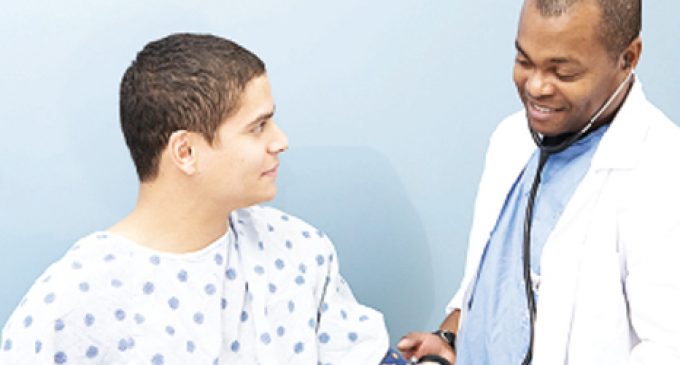The Human Touch

New WFU program will focus on training people-friendly docs
Wake Forest University’s Interdisciplinary Humanities Pathway to Medicine Program aims to train a new generation of doctors who will treat patients holistically.
The new program offers guaranteed admission to Wake Forest School of Medicine for up to five undergraduates majoring in the humanities or fine arts.
“The practice of medicine is fundamentally about working with people. It’s not about numbers. It’s not about tests. It’s about looking at people as whole persons. The Pathway program will foster holistic medical training and educate doctors in a truly Wake Forest way,” said Jacque Fetrow, dean of Wake Forest College.
The program combines Wake Forest’s top-25 undergraduate college students with its highly ranked medical school to help widen the lens through which future doctors examine and treat their patients.
Students apply in the fall semester of their sophomore year. They agree to major in history, philosophy or religion; English, a foreign language or classics; or art, theatre, music or dance. They must also minor in interdisciplinary humanities and complete all the prerequisites for
admission to Wake Forest School of Medicine. Successful candidates will be granted guaranteed admission by the end of the sophomore year.
“Coming out of high school, I had strictly labeled myself as a math and science person,” said third-year Wake Forest medical student Kristy Tayapongsak (’11). “If you had asked me about majoring in the humanities, I would have laughed. But majoring in religion in tandem with taking pre-med classes gave me the best of both worlds. Studying religion changed my thought process and will influence how I practice medicine. What I love about religion is the overlap between what I learned inside the classroom and how I live outside of it.”
Dr. Edward Abraham, professor and dean at Wake Forest School of Medicine, said the new program will fulfill a need.
“Focusing on students with a strong humanities background will add diversity to our medical school class and bring humanistic qualities such as empathy and good communications skills to the student body as a whole,” he said. “We know from previous data that students with this type of broad-based educational background are more likely to go into primary care, which is becoming increasingly important with the looming shortage of primary care doctors on the horizon. We are excited about this unique program with the University and expect these students to become leaders in our medical school, as well as enhance ties between the School of Medicine and the Reynolda campus.”












